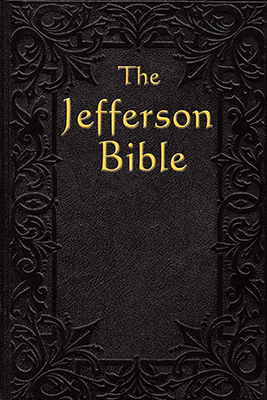
The Jefferson Bible
The Jefferson Bible
The Jefferson Bible, also known as “The Life and Morals of Jesus of Nazareth,” is a book created by Thomas Jefferson, the third President of the United States, in the early 19th century. Jefferson, a Deist who believed in a rational approach to religion, sought to distill the moral teachings of Jesus Christ from the New Testament while removing what he perceived as supernatural elements or miracles.
Jefferson meticulously cut and pasted passages from the Gospels of Matthew, Mark, Luke, and John, focusing solely on Jesus’ ethical teachings, parables, and moral lessons. He omitted sections containing miracles, divinity claims, and other supernatural elements, aiming to present Jesus as a moral philosopher rather than a divine figure.
The resulting work, the Jefferson Bible, is a concise and straightforward compilation of Jesus’ teachings on compassion, kindness, forgiveness, and ethical living. It reflects Jefferson’s belief in the importance of reason and morality while downplaying religious dogma and superstition.
In his introduction to the Jefferson Bible, Jefferson explained his motivations for creating the work and expressed hope that it would serve as a guide for moral instruction and philosophical reflection. He intended it primarily for his own personal use and contemplation but also shared copies with friends and family.
The Jefferson Bible remains a fascinating historical artifact that sheds light on Jefferson’s religious beliefs and his views on the role of religion in society. It reflects the Enlightenment ideals of rationality, tolerance, and humanism while offering a unique perspective on the teachings of Jesus Christ.
